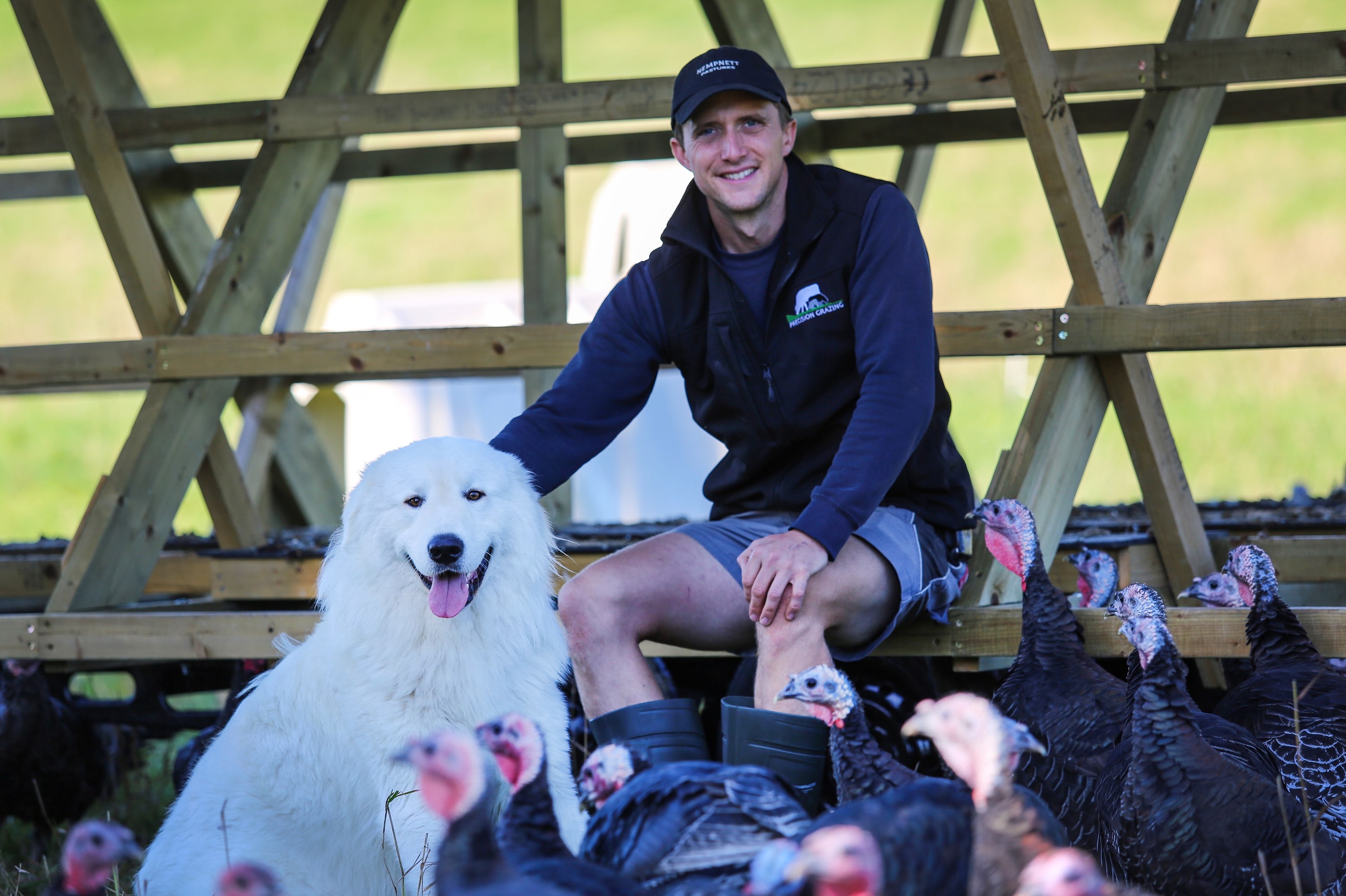Should we rewild or rewind?
- George Ford
- Jan 28, 2022
- 3 min read
Updated: Mar 23, 2022
There has been a lot of talk about ‘Re-wilding' recently, but is there a way we can produce food and bring back nature to our farms at the same time?
Rewinding, essentially is where a piece of land is left to rest without being managed, left to grow up and be wild, letting nature do its thing. However for an ecosystem to really thrive it not only needs a diversity in plants but a diversity in animals to manage the plants. It’s predicted that you need an area as big as 100,000+ha to truly ‘re-wild’ an ecosystem with essential predator/prey activities that keeps land healthy and vegetative.

Now this sounds like a great idea on paper, and I love all things nature, but I also understand how the world works and if we just take land out of food production here, all it might do is decrease our level of self sufficiency (currently we’re only about 60% self sufficient), increasing our vulnerability and reliance on imported food, which will put pressure on other countries to produce more food for us, and how are they going to do that? Farm more intensively, potentially using more and more chemical inputs, GMO’s, mining the soil of more nutrients and increasing the amount of deforestation? Is this really going to help our planet? Let’s not export our environmental concerns.
Instead of re-wilding one area to intensify another, why don’t we farm in a way that increase’s biodiversity, creates thriving healthy landscapes with food production and nature as one. We need to farm in harmony with nature, we need to ‘RE-WIND’ and adopt holistic farming practices that our great grandparents used pre-war, pre-chemical and industrial agriculture, when ‘organic’ farming was just ‘farming’ because that’s all there was. Industrial and intensive agriculture has only really been around for one maybe two generations, this really isn't very long in the grand scheme of things.
The advantage we have today is modern technology, we can now farm using old principles but with increased productivity, for example we can now use electric fences and plastic water wipe to manage grazing, mimicking the predator/prey activities that built the most productive soils on earth.
Just by changing our grazing management; moving our cattle regularly, allowing longer rest periods between grazings and grazing taller more mature grasses, we have created so much more plant diversity and increased habitats for insects and wildlife. It’s so refreshing to know how resilient nature is, bouncing back so quickly, same number of cows, same area of land, just different management.

It takes a change in mindset to adopt these older practices and for me it’s important to think of them as forward steps not backward steps. The modern industrial agriculture that we thought was so much more productive and efficient is actually destroying our soils and our planet, and could eventually leave us hungry, but it's not too late for us to change and reverse these negative impacts we are now seeing.
I'm not against re-wilding as a practice, and I think re-wilding certain areas could genuinely improve wildlife networks and habitats but these places need to be carefully thought about and strategically designed. As a small densely populated country we really can't afford to sacrifice too much of our food production. Especially when we can farm in a way that can achieve many of the objectives of re-wilding as well as producing amazing, nutrient dense food, this is what I would like to see encouraged, this is how I want to farm.
George Ford


Comments